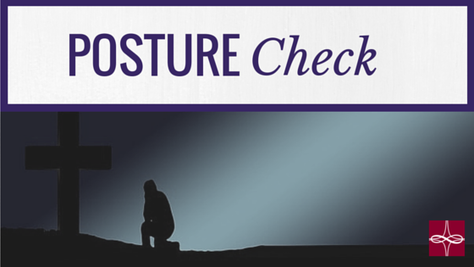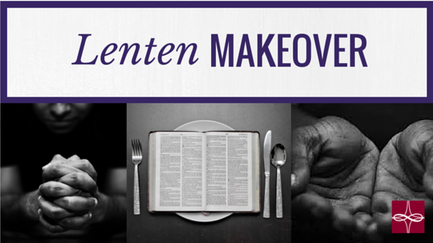|
Growing up, my family celebrated Thanksgiving in a traditional way. We would wake up around 8am, watch the “Macy’s Thanksgiving Day Parade,” Broadway musicals, and wait for the rest of the parade to stroll through New York City - from our television. In between the commercials, we would help each other cook and prepare the dinner (which was usually eaten around 1pm or 2pm). As we all grew older and moved away, my siblings and I started making our own memories with those we loved around us. Sometimes, we’ll be surrounded with more than ten people and other times it is just two of us. Sometimes, we have just enough to feed us and other times we have leftover for days. But no matter what, Thanksgiving for me is about “the food before us, the family beside us, and the love between us.”
When reminiscing on Thanksgiving, I also think immediately of the Psalms. To me, the Psalms help provide a great variety of prayers of thanksgiving for what God has done for His people. Sometimes, we forget that God is the one we need to thank. We get caught up in our own lives and think that we only need to be thankful for our gifts and talents. In my 2nd grade classroom, my students take a moment to pray a prayer of thanksgiving at the end of the day. Psalm 28:7 sums up my point: The LORD is my strength and my shield; my heart trusts in him, and I am helped. My heart leaps for joy and I will give thanks to him in song. The more we find moments to thank God for parts of our days and lives, the more we are aware of our own need to do good for others. Being a “person for others,” as promoted by Ignatian spirituality, means helping those around you wherever you are and in everything you do. This is how I try to give back, by being a person for others. People need our help and we can give that through sending prayers, providing food, finding shelter, understanding the plight, giving resources, sending love and so much more! Every year, my dad leaves Thanksgiving dinner to donate turkeys to local families and people who need their own Thanksgiving dinners. Doing unto others as you would want them to do to you is the way to live throughout the year. This way of looking at life encompasses more than a holiday. The following poem by Joanna Fuchs is about how each thing in our life can be a blessing for us - especially at Thanksgiving. Most of All Thanksgiving Day brings to mind the blessings in our lives that usually go unnoticed: a home that surrounds us with comfort and protection; delicious food, for pleasure in both eating and sharing; clothes to snuggle up in, books and good entertainment to expand our minds; and freedom to worship our God. Most of all we are thankful for our family and friends, those treasured people who make our lives extra special. You are part of that cherished group. On Thanksgiving, (and every day) we appreciate you. Happy Thanksgiving! Editor's Note: This post was originally published 11/24/2015.
0 Comments
Recently, during a parish mission for Lent that focused on the Jubilee of Mercy, I found that a simple review of the corporal and spiritual works of mercy had a profound impact on those who participated. My short reflections on the works of mercy were not meant to be at time of group guilt about what had not been done, but instead provided an opportunity for the participants and for me to reflect, and then - hopefully - act. In the reaction of the participants, I witnessed a revival of faith and a rekindling of charity that, I believe, will lead to deeper living as apostles or missionary disciples. God's mercy and love are offered not just for a moment, but forever. Lent is a perfect time to experience again God's mercy and live well the works of mercy. As we continue through the season of Lent, we strive to know Jesus Christ more fully through the Lenten disciplines of prayer, fasting, and almsgiving. Sometimes almsgiving is seen as something simply monetary. If almsgiving, however, is not only related to our treasure, but also to our time and talent, then we can see how easily the corporal and spiritual works of mercy can help us express all three aspects of this Lenten practice. Pope Francis invites us to reflect on the corporal and spiritual works of mercy in his Lenten Message, "For all of us, then, the season of Lent in this Jubilee Year is a favorable time to overcome our existential alienation by listening to God's word and by practicing the works of mercy. In the corporal works of mercy we touch the flesh of Christ in our brothers and sisters who need to be fed, clothed, sheltered, visited; in the spiritual works of mercy - counsel, instruction, forgiveness, admonishment and prayer - we touch more directly our own sinfulness." May the charity of Christ urge us on to live well the works of mercy!
How is your posture? Whether I’m teaching a relaxation and scripture meditation class, aerobics, floor and core work, strength and balance, or working one-on-one with an individual, I am constantly reminding my students to, “check in with your posture.” Are your feet firmly planted in the ground? Are you engaging your thighs? Is your pelvis tilted under and your spine lengthened? Is your core engaged? Are your shoulders rolled down and back? Is your head and neck lifted? Where is your focus? I’m sure that any of my students will tell you that, at first, it is slightly unnerving to hear constantly. Soon, however, we each come to realize what an important role proper posture plays, not only in our everyday lives, but especially during our exercises. The simplest of movements can be made more challenging and more beneficial for the whole body and mind by engaging and practicing proper posture. Through the effort of involving the whole body, we are able to improve our balance, kinesthetic awareness, and better focus on isolating the specific muscles that we are moving or working. When we are able to unite that kind of movement awareness with the sacrifice of an intention or prayer, powerful things can happen within and through us. Although it is hard to believe, we are just about half way through our Lenten journey. It’s time to check in with our spiritual posture. Are we engaging our Lenten spiritual muscles of prayer, fasting, and almsgiving? Is our human pride tucked under and our humility engaged? Are our shoulders rolled back and our head held high during our offerings of sacrifice so as not to draw attention to our sacrificial efforts? (Matthew 6:5-8) Or are we simply going through the motions, executing the exercise, without engaging our whole selves? We are all called to be saints within our own right. Becoming a saint and bringing the glory of God and the saving power of Christ into the world is what we were created to do. That is our Eastertide. That is what we are “training” for. Lent is not meant to be business as usual. Therefore, our spiritual posture becomes even more relevant and important as we challenge, exercise, and train ourselves for what we are called to be. There may be times in our lives where going through the motions is necessary. Sometimes, it may be all we can do—and that’s okay. However, Lent is our time to persevere. Lent is our training season. What do we need to remove from our lives to reach a healthier state spiritually, emotionally, mentally, and physically? What are the things we need to hang onto or strengthen in order to reach our Easter goal? As we assess our journey thus far, perhaps we can call upon the assistance and intercession of St. Katherine Drexel as we honor her on her Feast Day today. Saint Katherine Drexel beautifully expresses that our entire being and all that we do, from work to play, to keeping ourselves healthy, should be offered back to our heavenly Father for His glory. For it is only through Him that we receive our spirit and our faculties. It is through Him and our offerings to Him that we receive the strength and ability to complete the work that He calls us to and to become the saints we are called to be. In her personal writings, she prayed: “Yes, my Lord and my God Jesus, to you I commend my spirit, my soul with its faculties, my body with its senses, my heart with its affections, all that I have, and all that I am. Dispose of me absolutely, in everything, according to your will. From now on, dearest Jesus, may everything outside you be a matter of indifference to me, provided only I accomplish your will and advance in your love. O Jesus, I love you and your Mother and abandon myself to your love for time and eternity.” Check in with your posture. Do the hard work and don’t be afraid to sweat your way through the rest of Lent. Unite your work, your dedication, and your sacrifices with the saints and angels and call on their intersession for strength. Stay focused on the end result, the finish line, the Easter joy. For more resources to help your spiritual Lenten posture, click here. When I was younger, my family loved to watch the show “Extreme Makeover: Home Edition,” where a family’s home is rebuilt for them and everything is made-over and new. On the last day, the family sees what their house has become in a big reveal. When I think about Lent, I compare it to a time of preparing my heart for the biggest makeover and surprise “reveal” in my faith: Easter Sunday.
Prayer. Something new for me this year is a daily prayer journal of reflections on the readings from each day of Lent. I have found myself able to look forward to this prayer journal each morning, and have even found a special place to reflect and start the day off on the right foot. My hopes are that this daily prayer journal becomes a habit for starting each day with God in prayer and silent reflection. One interesting aspect of this journal is that every few days there is a reflection geared towards women of faith such as Mother Mary, St. Veronica, and St. Mary Magdalene de Pazzi. They are a few women who I am excited to reflect upon this Lent. As part of this daily journal exercise, I am meeting with a few other friends of mine who are also on this Lenten prayer journey. We discuss our thoughts, pray for each other's intentions, and encourage each other to be faithful to prayer. I think this community aspect, combined with personal prayer, will help strengthen my resolve for peace and prayer this Lent and “remodel” my prayer life. Fasting. Every year, people decide what they should “give up for Lent.” Many times, Lent gets combined with a New Year’s resolution or a diet plan. Although taking a “fast” from something is an important way to remove distractions from one’s life and become closer to God, the purpose is often lost when it involves giving up something like desserts and sugar. I have challenged myself this Lent to not only give up something, but also to add something on. For example, I have decided to fast on Wednesdays in an attempt to have a reminder on that day of Christ’s suffering in the desert. I have also added a daily prayer routine to my life in an attempt to form a prayerful habit to last longer than these 40 days. Another example comes from my 11 year old sister, who has decided that she will be giving up the few hours she spends watching TV each day to spend more quality time with the people in her life, like our parents. Her strength is admirable, and if she keeps with it, she will feel “made-over” with love for others. Almsgiving. This Lent, my class is in charge of distributing CRS Rice Bowls to the school, teaching the school about the purpose behind rice bowls, and collecting them all at the end to donate to CRS. The focus each week of Lent includes a new country to think about, pray for, and learn about in hopes of empathizing with the people there. My 2nd graders have only begun Lent, but some are already starting to understand that others are not as blessed as they are in Washington, DC. On Friday, the topic of severe hunger came up, and some students didn’t realize that other people in the world do not have breakfast each morning, or that some people do not have homes to go back to at night. This empathetic realization from a few students helped them connect and compare their own lives to those of others. This made me appreciate the CRS Rice Bowl project even more, knowing that this operation is happening all over the U.S.—reminding Catholics of how blessed we all are to be living the way we do. This Lent, I have my own personal rice bowl which I intend to fill up with donations and hope to “makeover” by using it to give to others in almsgiving. For the remaining weeks of Lent, I leave you with this one challenge: you can rebuild, remake, or remodel your life, but the end goal is simple: prepare your hearts. Use these 40 days to pray as Christ did in the desert, fearlessly and fervently. May your actions and habits that help you grow during Lent also transfer into the rest of the year. Aim to give of yourself to others in many different ways, imitating Christ’s sacrifice for the world. Get ready for the “big reveal” when you are “made-over” in His love and are ready to celebrate the empty tomb on Easter Sunday. Then we can say, like in the home-makeover show, “Move…That….Rock!” For more Lenten Resources, please click here. Among Catholics who take the season of Lent seriously, I’ve noticed a number of different approaches. There are the subscribers to Lent as boot camp. Boot campers decide to fast not just from one food they love, but from most foods they love. Added to this, they decide to get up an hour earlier than normal to pray or go to Mass, and they are going to give money to anyone they meet who needs help. A second group makes one serious commitment and day by day spends a little more time thinking about God, remembers they are not eating fried foods and discovers the joy of crunchy vegetables, and starts collecting their change each day so as to make a contribution to a worthy group. A third group is pretty darn casual about the whole thing, happy that, over forty days, they may remember not to eat meat on a Friday or two, will get to confession, and will go all in for the campus ministry or parish hunger awareness campaign.
Many of us, me included, have a love-hate relationship with Lent. It can so easily become more of a contest than a season of prayer. Thomas Merton once remarked that his brothers, in wanting to outdo one another in the severity of their fasts, became a bunch of grouchy, miserable men. Far better, Thomas thought, to feast and give thanks to God for his abundance than to fast and make yourself and others miserable. How is that holy? Thomas wondered. The ancient disciplines of prayer, fasting, almsgiving which define the season of Lent are about making right the three most important relationships in the life of a Christian, God, self and others. In the Catechism of the Catholic Church we read that “the interior penance of the Christian can be expressed in many and various ways. Scripture and the Fathers insist above all on three forms, fasting, prayer, and almsgiving, which express conversion in relation to oneself, to God, and to others” (Catechism of the Catholic Church, 1434). Rather than a contest with our best and worst selves, we are invited to think about what will make our relationship with God stronger. Where do we need to bring some balance into our lives so as to be healthier and what relationships are asking us to be more giving; emotionally, practically or monetarily? I’ve learned from my own experience that Lent is most fruitful when I take some time to think about how I can deepen my relationship with God. What am I eating or drinking or doing (or maybe not doing) that is really not healthy or good for me? And where can I be more generous with the people who are part of my everyday life? Answering these questions opens up a number of practices that will make a difference over the course of forty days. My goal is to make these things a habit, not doing them for forty days and then be done, but rather to discover at the end of 40 days, they have become easier and have found a permanent place in my daily routine. If done well, I also am more aware of the depth and breadth of God’s love and mercy, because whether I am successful or not, I am saved. Jesus died for me so that my own failures and sins are not the end of my story. Susan Timoney is the Assistant Secretary for Pastoral Ministry and Social Concerns for the Archdiocese of Washington and an adviser for the Catholic Apostolate Center This post was originally written and posted on the St. Joseph's College Theology Blog, an affiliate of the Catholic Apostolate Center. For more posts please visit the St. Joseph's College Theology Blog Page. With the liturgical season of Lent – one of the holiest and most sacred times for our Church – now upon us, - many Catholic minds are churning in anticipation. While we prepare ourselves with the due reverence for Lent, we are equally busy devising just exactly what we shall sacrifice and how shall we keep it. While this great fast is meant to ignite a vision of our Christ, unyielding in temperance through the desert in the face of Satan’s temptations, our holy fast often is diminished to a game of “what is the best fasting practices to talk about with others?” or “I’ll kick start my diet by giving up sweets for Lent.” Suddenly our religious devotional practice becomes much less about Christ, much more about ourselves.
This is not to say our mismanaged practices are meant to only serve ourselves. It is also not meant to say that our “sacrifices” are not challenges. Nor is this meant to discourage anyone from giving up sweets. This is to say that there is a chasm in many of our modern, personal interpretations of our Catholic practice. Often, we attempt to fulfill the tradition without prayer or holy intentions and we boastfully bemoan our devotion with ironic agony to our friends and family “I won’t even have sweets on Sunday, not a bite!” This, I believe, is not what is meant for our journey through Lent with Christ. This journey is a glorious opportunity for devotion and recommitment to prayer, abstinence, and almsgiving. We may share our devotions with others, but we should seek to share as a means of support and reflection without pride or seeking attention. So, I propose a new kind of devotional practice. Instead of banishing the tasty treats from your pantry or giving up your favorite television show, let’s take one step closer to our Community of Faith in our Lenten sacrifice. These practices help us to grow closer to Christ. This year, why not try this through a prayer-filled recognition of the struggles that our brothers and sisters here on Earth face each day? Practicing sacrifice with added prayerful reflection and a commitment to our community is much more doable than one might think! This Lent, park in the back of the grocery lot; as you walk towards the door, say a prayer for older adults who may be challenged to walk such a short distance Or, if you like to give up sweets, do so in celebration for the abundance of what you have been blessed with! The money that is not spent on sweets may be used to purchase non-perishables to donate to a local Saint Vincent de Paul societies. The idea is that while we make sacrifices this Lent, we do so in the spirit of Christ and in support of our community! When we sacrifice of ourselves so that others may be blessed in the wake of our actions, we grow closer to Christ. As we sacrifice with a humble and gracious heart, prayer becomes a natural step towards not only a stronger relationship with Christ, but so too, with fellow members of our community. Brothers and sisters, let us prepare ourselves for the celebration of the Easter season by using the sacrificial Lenten season as a means to strengthen the bonds between Christ and community. Samantha Alves is working toward a M.S.W. at Boston College and currently works for the Massachusetts Coalition for the Homeless. |
Details
Archives
April 2024
Categories
All
|
About |
Media |
© COPYRIGHT 2024 | ALL RIGHTS RESERVED











 RSS Feed
RSS Feed